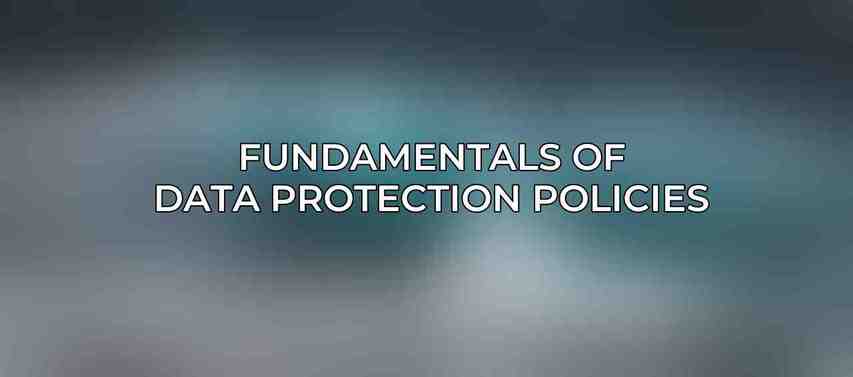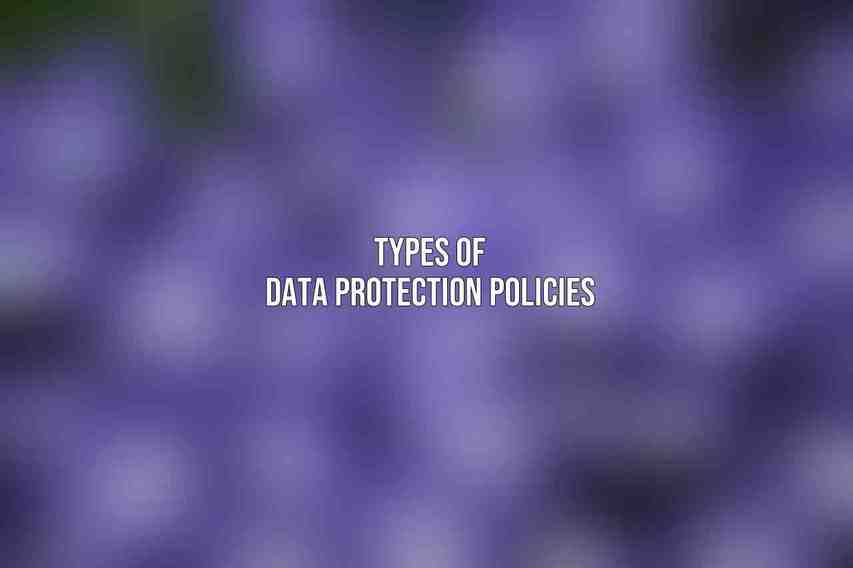data protection policies play a critical role in safeguarding confidential information. Data protection policies refer to a set of guidelines and procedures designed to ensure the safety, privacy, and integrity of data collected and managed by organizations. These policies are essential for maintaining the trust of customers, complying with legal regulations, and mitigating the risks associated with data breaches.
The significance of data protection cannot be overstated in this interconnected world. With the increasing volume of data being generated and shared online, the need to protect sensitive information has become paramount. Companies face both legal and ethical obligations to safeguard the data they collect from customers and employees. Failure to uphold data protection standards can result in legal penalties, reputational damage, and financial losses.
Fundamentals of Data Protection Policies

A comprehensive data protection policy encompasses various components that govern how data is collected, stored, accessed, and managed within an organization. Some key elements of these policies include:
| Components of Data Protection Policies |
|---|
| Data collection and storage practices |
| Data access and permissions |
| Data retention and disposal guidelines |
Implementing best practices for secure data management is crucial for ensuring the confidentiality and integrity of data. This includes employing encryption and anonymization techniques to protect data at rest and in transit, establishing robust incident response and recovery plans to address security breaches promptly, and implementing data breach prevention measures to reduce the risk of unauthorized access.
Types of Data Protection Policies

There are several types of data protection policies tailored to different needs and regulatory requirements. These include:
- General data protection policies that establish overarching principles for data security.
- Industry-specific data protection policies, such as HIPAA in healthcare, GDPR in Europe, and CCPA in California.
- Data protection policies specific to certain types of data, such as personally identifiable information (PII) or sensitive data.
Comparing and contrasting these different policies helps organizations understand the unique requirements and compliance standards associated with each type of data they handle.
Implementation and Enforcement of Data Protection Policies
Successful implementation of data protection policies requires a comprehensive approach that includes:
- Communication and training to ensure all employees understand their responsibilities.
- Monitoring and auditing mechanisms to assess compliance and detect potential violations.
- Consequences for non-compliance to incentivize adherence to policies.
- Regulatory compliance and participation in certification programs to demonstrate commitment to data protection best practices.
By enforcing these mechanisms, organizations can create a culture of data security and accountability within their workforce.
Stay tune for the next part of the article
Frequently Asked Questions
What is data protection?
Data protection refers to the policies and practices that organizations put in place to safeguard sensitive information from unauthorized access, use, or disclosure.
Why are data protection policies important?
Data protection policies are essential for ensuring the confidentiality, integrity, and availability of sensitive data. They help organizations comply with privacy regulations, mitigate risks, and build trust with customers.
What are the key components of a data protection policy?
A data protection policy typically includes guidelines for data collection, storage, access control, encryption, data retention, and incident response. It also outlines the responsibilities of employees in handling data.
How can I ensure compliance with data protection policies?
To ensure compliance with data protection policies, organizations should regularly review and update their policies, provide ongoing training to employees, conduct risk assessments, and implement security measures such as encryption and access controls.
What are some common challenges in implementing data protection policies?
Common challenges in implementing data protection policies include balancing security with usability, managing compliance with complex regulations, securing data across multiple devices and platforms, and keeping up with evolving threats and technologies.

